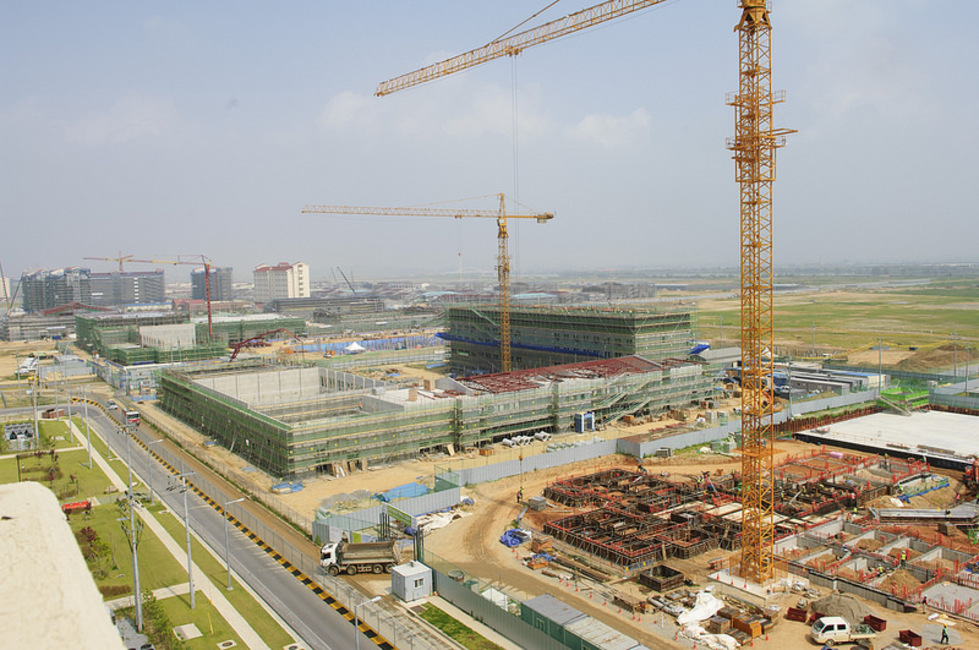government investment, Construction
Brexit uncertainty is continuing to affect UK construction growth predictions. Several industry bodies have forecast declines in expectations for 2019 and beyond. All is not doom and gloom, however. There are several projects outside London, which, although facing some delays, are set to receive continued government investment in the short and long term.
Over the next decade, the UK government has allocated over £600 billion to invest in construction projects. At least £44 billion of this funding will be earmarked for housing with the rest to be spent on improving infrastructure. In real terms, this funding represents a massive boost for UK employment. From civil engineering to project management, encompassing site workers, office-based staff, managerial and production operatives, employment within the construction sector influences every part of society.
Network Rail Trans-Pennine route upgrade
The Trans-Pennine route upgrade affects the railway line between Manchester Victoria and York/Selby, incorporating Leeds and Huddersfield. As part of the wider project to improve railway services across the North of England, the upgrade aims to deliver more reliable and frequent transport from Newcastle and Hull in the North East to Liverpool and Manchester via Leeds.
The plans for electrification and interchange improvements have been submitted by Network Rail to the government’s Department for Transport and are currently under consideration. The project is predicted to take almost a decade to complete and costs are estimated in the region of £2.25 million. Government funding for the project stands at £150 million and will help with the implementation of smart card ticketing systems throughout the region.
HS2
The ambitious HS2 project is designed to provide super-fast rail transport between 8 of the UK’s 10 largest cities. Phase 1 is planned to link London Euston to Birmingham Curzon Street and was approved by the Houses of Parliament in 2017. Phase 2 will continue from the West Midlands to Manchester and Leeds via the nationwide hub at Crewe. Future phases are planned to connect Liverpool, Newcastle and Edinburgh/Glasgow.
HS2 has already created thousands of jobs across planning, construction and engineering. Over the life of the project, a broad and diverse selection of opportunities will be created encompassing everything from re-housing and community support to environmental management and noise reduction. The government have pledged £45 million for community projects focused around HS2. Some of the first recipients of the CEF (Community and Environment Fund) will be a 900-year-old Warwickshire church and a Northamptonshire pre-school.
Hinckley Point
In 2008, the UK government granted approval for building a new generation of nuclear power plants. Hinckley Point in Somerset was earmarked as one of the new nuclear sites. The project, however, has been mired in controversy. A joint venture between French energy firm EDF and Centrica was dissolved when Centrica pulled out of the deal in 2013.
In 2015, the UK government announced a £2 billion loan guarantee for the project and later the same year, the state-owned China General Nuclear agreed to invest £6 billion into the project if the terms were agreed. In July 2017, EDF stated that the total cost of Hinckley Point was likely to increase to £20.3 billion. The government are now in the process of developing a funding model based on the £4.2 billion Thames Tideway Tunnel project to be used for follow up nuclear energy projects in Sizewell, Surrey and Anglesey in North Wales.
House building
In his spring statement, Chancellor Philip Hammond pledged £3 billion to lend to housing associations to support the building of 30,000 new affordable homes. Both Didcot in Oxfordshire and Cambridge were earmarked for the house building alongside sites across Cheshire in North West England. The government target is to be building 300,000 new homes per year by the mid-2020s.
House building plans are also focused on building more sustainable properties. The government plans to introduce a range of criteria for new build properties under a Future Homes Standard which will require all new builds to achieve high energy efficiency ratings and low carbon emissions. This will create an array of scientific research-based jobs as building products are required to undergo increasingly rigorous testing for their thermal efficiency capacity. The standards are set to be introduced by 2025.
In summary, the government are dedicated to funding UK construction and infrastructure projects over the next decade. This presents a wealth of opportunities for companies and individuals in terms of employment and development. From the skilled engineers, building workers, management and administrative staff working directly on the projects to the support workers such as catering, cleaning and community support workers who work alongside project staff, the opportunities across construction are diverse both occupationally and geographically.


